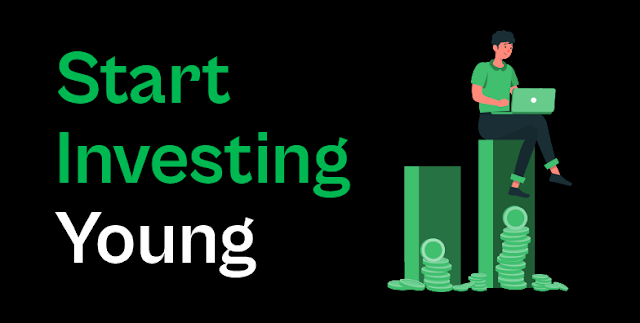The Importance of Early Investment for Financial Future
Investing early is a crucial step toward securing a stable and prosperous financial future. Many individuals often delay investing, thinking it’s something to consider later in life. However, starting early provides numerous benefits that can significantly impact your long-term financial health. This article delves into the importance of early investment and how it can pave the way for financial security.
Understanding the Power of Compounding
One of the most compelling reasons to start investing early is the power of compounding. Compounding refers to the process where the earnings from an investment are reinvested to generate additional earnings over time. Essentially, you earn interest on your initial investment and on the interest that accumulates. The longer your money is invested, the more time it has to grow through compounding.
For example, if you invest $1,000 at an annual interest rate of 5%, you will earn $50 in the first year. In the second year, you will earn interest not just on your initial $1,000 but also on the $50 interest from the first year. Over a long period, this can result in substantial growth of your initial investment.
Building Financial Discipline
Starting to invest early instills financial discipline. It encourages you to save and allocate a portion of your income towards investments regularly. This habit of disciplined saving and investing becomes a cornerstone of financial stability and wealth creation. When you make investing a priority from a young age, you are more likely to continue this practice throughout your life, leading to a secure financial future.
Mitigating Risk Over Time
Investing early allows you to spread and mitigate risks over a longer period. All investments carry some degree of risk, but starting early provides a cushion against short-term market volatility. Young investors have more time to recover from market downturns and take advantage of market upswings. This long-term horizon can result in a more balanced and less stressful investment experience.
Achieving Long-Term Financial Goals
Whether it’s buying a house, funding your children’s education, or preparing for retirement, early investments play a vital role in achieving long-term financial goals. By starting early, you give your investments more time to grow, making it easier to reach these goals. For instance, if you start saving for retirement in your 20s, you will need to save less each month compared to if you start in your 40s. This early start can significantly ease the financial burden of achieving your future aspirations.
Benefits of Diversification
Starting to invest early provides the opportunity to diversify your investment portfolio. Diversification involves spreading your investments across various asset classes, such as stocks, bonds, real estate, and mutual funds, to reduce risk. With a longer investment horizon, you can explore different investment options and adjust your portfolio based on your risk tolerance and financial goals. This strategic diversification can enhance your returns and provide stability to your investment portfolio.
Harnessing Tax Advantages
Many investment accounts, such as Roth IRAs and 401(k)s, offer tax advantages that can enhance your investment returns. By starting early, you can maximize these benefits over a longer period. For example, contributions to a traditional 401(k) are tax-deductible, reducing your taxable income for the year. Additionally, the earnings in these accounts grow tax-free until withdrawal, allowing your investments to compound more effectively.
Psychological Benefits
Investing early also offers psychological benefits. Knowing that you have a financial plan in place and are actively working towards your future can provide peace of mind and reduce financial stress. This sense of security allows you to focus on other aspects of your life, knowing that your financial future is on track.
Practical Steps to Start Investing Early
1. Educate Yourself: Understanding the basics of investing is crucial. There are numerous resources available, including books, online courses, and financial advisors, to help you get started.
2. Set Clear Goals: Define your financial goals, whether it's buying a home, funding education, or saving for retirement. Having clear goals will guide your investment strategy.
3. Create a Budget: Establish a budget to determine how much you can allocate towards investments each month. This ensures you are investing consistently without compromising your daily financial needs.
4. Choose the Right Investment Accounts: Consider opening investment accounts that offer tax advantages, such as IRAs or 401(k)s, to maximize your returns.
5. Start Small: You don’t need a large sum of money to start investing. Even small, regular contributions can grow significantly over time.
6. Seek Professional Advice: If you're unsure where to start, consulting with a financial advisor can provide personalized guidance based on your financial situation and goals.
Conclusion
The importance of early investment cannot be overstated. By starting early, you harness the power of compounding, build financial discipline, mitigate risk, achieve long-term goals, benefit from diversification, take advantage of tax benefits, and enjoy psychological peace of mind. Regardless of your current financial situation, taking steps to start investing today can set you on the path to a secure and prosperous financial future. Remember, the earlier you start, the greater the benefits will be.






